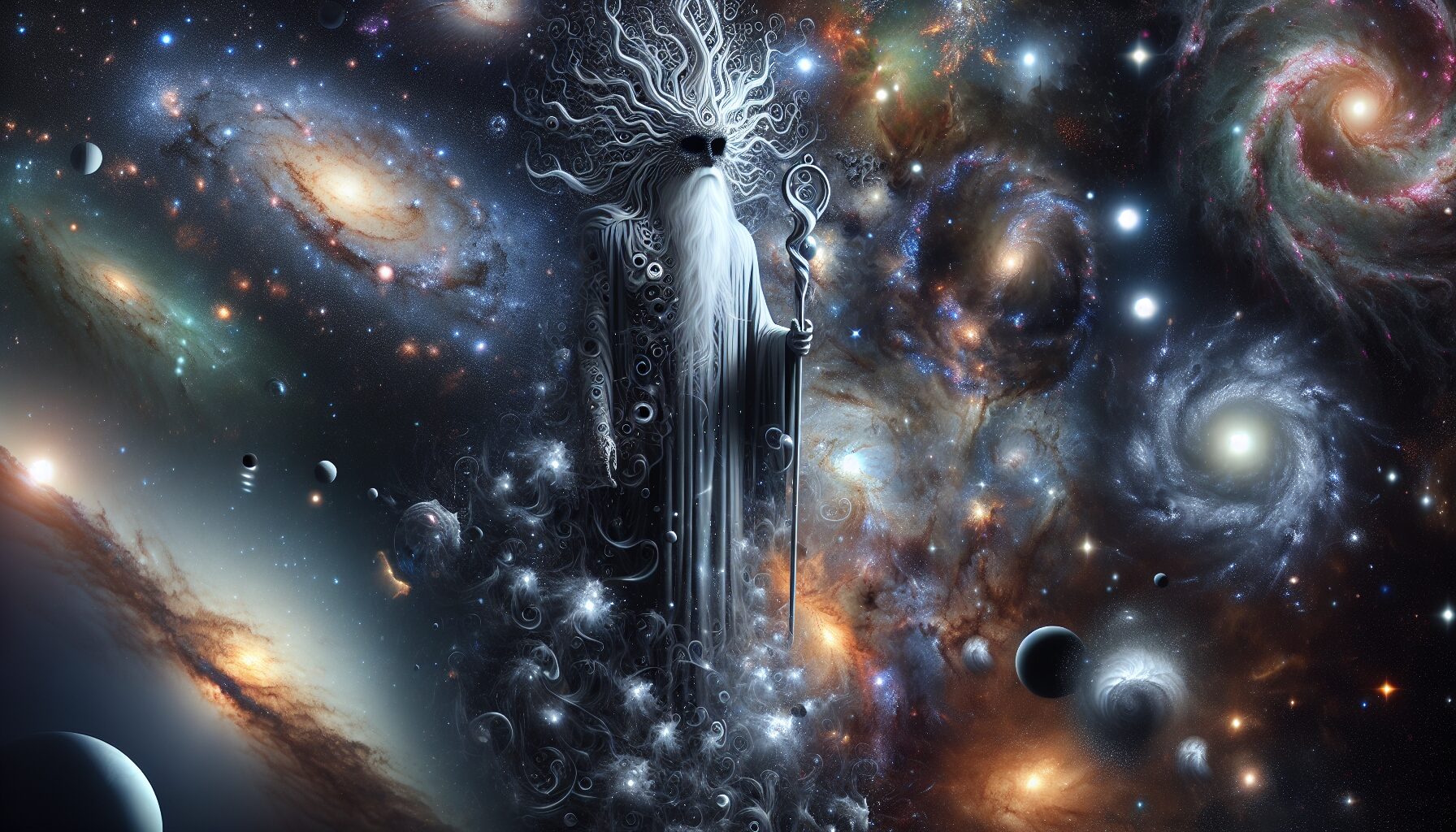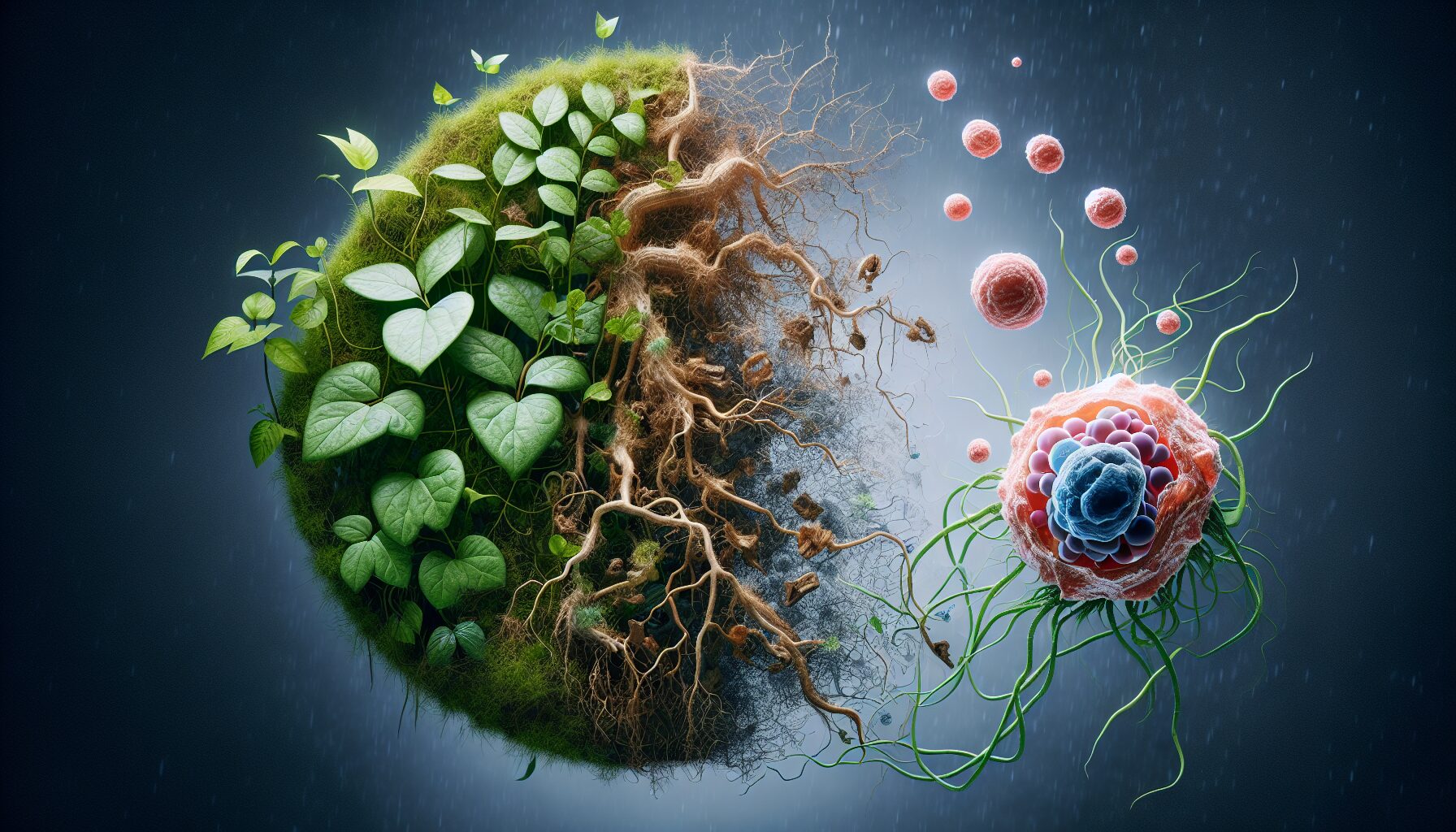In the grand tapestry of existence, the concept of entropy weaves through both the fabric of the universe and the essence of human life. Often synonymous with disorder and decay, entropy may be perceived as nature’s ultimate verdict on mortality. As the scientific lens brings clarity to the complex nature of entropy, it unveils perspectives that challenge our understanding of death and, perhaps, transcendence.
The Science of Entropy
Entropy, a core principle of the second law of thermodynamics, is a measure of the amount of disorder or randomness in a system. The second law posits that in an isolated system, entropy tends to increase over time. This universal tendency towards disorder is the driving force behind many natural processes, from the melting of ice to the eventual heat death of the universe. In terms of physics, entropy is quantified in joules per kelvin, capturing the dispersal of energy that marks each system’s journey towards thermal equilibrium.
“Entropy is the ultimate metaphysical explanation of the world,” writes Philip Ball in Scientific American. “It drives home the point that day-to-day, and eventually existential, disorder is woven into the fabric of natural law.”
The Role of Entropy in Life and Death
For living organisms, entropy manifests in the gradual breakdown of structures and processes. Biological systems, while highly ordered, are not exempt from the universal journey toward disorder. Cellular structures decay, entropy increases, and the once orderly arrangement of matter dissolves, culminating in the end we call death.
According to a study published in Nature, the concept of programmed decay, where organisms age and eventually die, can be viewed as nature’s method of recycling energy. Thus, life and death are not diametric opposites but rather fluctuating states within the ceaseless dance of entropy.
Spiritual Parallels and Entropy as “God”
The philosophical implications of entropy stretch beyond scientific discourse and into the realm of spirituality. If entropy dictates the inception, evolution, and conclusion of the universe, it becomes analogous to a divine force—what some might call “Entropy as God.” It embodies omnipresence, omniscience, and the all-encompassing passage of time.
“When you consider entropy not as an enemy but as a law-like expression of natural order, it takes on an almost divine essence,” notes physicist Ethan Siegel at Forbes. “It reminds us of the impermanence and yet paradoxically eternal cycle of creation and decay.”
Challenging the Finality of Death
While entropy defines life’s finite nature, it also opens doors to new forms of philosophical and existential exploration. If viewed through the lens of ongoing transformation rather than termination, death becomes a transition rather than an absolute end. As each organism dissolves back into the universe, it surrenders its ordered structure yet perpetuates a cycle that fuels new life.
The cycle of life, death, and rebirth is not foreign to spiritual teachings across cultures. The Hindu concept of Samsara—the cycle of death and rebirth—is a compelling parallel to the scientific interpretation of entropy. Entropy and spiritual rebirth converge in their acknowledgment of continuous, cosmic metamorphosis.
Implications for the Future
As science advances, the understanding of entropy and its broader implications continues to evolve. While death remains an absolute in the biological sense, the entropic perspective provides a holistic view of existence that shines a different light on mortality. Within the enormity of the universe, our roles are part of an overarching and interconnected process—essential components within an eternal cycle.
For scientists and thinkers alike, embracing entropy as a guiding principle could pave the way to revolutionary insights into the universe’s nature. As we unravel the mysteries of our existence, let us consider that entropy, far from being an end, may represent the inexhaustible potential of cosmic reinvention.
The dance with entropy is one we all share, thus prompting the question: in viewing entropy as “God,” can it transform how we perceive our mortal passage through life into death? In this lens of eternal transformation, perhaps our final moments are not a silence but a continuation—a thread within the larger weave of the universe.

